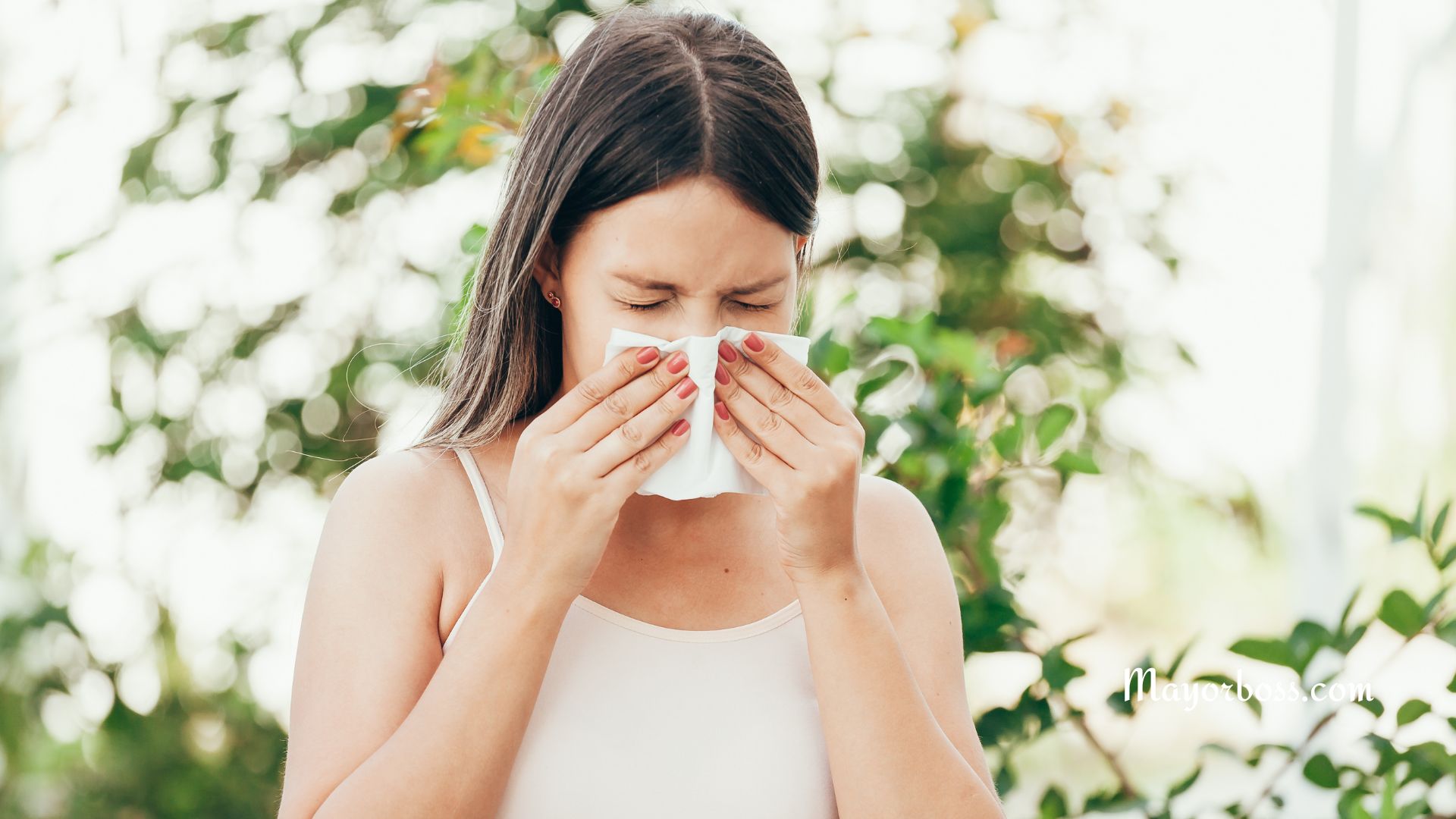One Thing You Should Never Do If You Want to Avoid Getting Sick This Winter
Winter is here, and that means colder weather, holiday cheer, and, unfortunately, the arrival of cold and flu season. While there are many steps you can take to stay healthy, there’s one often overlooked habit that can greatly impact your health—touching your face. According to Dr. Natalia Hapych, a certified family medicine doctor, “Touching your face is one of the easiest ways germs and viruses enter your body through your nose, mouth, and eyes, particularly in the winter months.”

Touching Your Face Can Easily Introduce Germs Into Your Body
Touching your face—specifically your mouth, nose, and eyes—gives germs a direct path into your body,” says Dr. Hapych. Every day, we touch countless surfaces teeming with germs, from doorknobs and shopping carts to our phones and keyboards. When you touch these surfaces and then touch your face, you’re giving any viruses or bacteria a quick and easy route to your mucous membranes. These are the entry points where germs can cause infections.
Research indicates that the average person touches their face up to 23 times per hour. Dr. Hapych points out that during cold and flu season, this habit can be particularly risky. “Viruses like the flu and even the common cold are spread primarily through droplets. If you touch a contaminated surface and then touch your face, you’re potentially introducing those viruses directly into your system,” she warns.
Why Winter Makes Face-Touching More Dangerous
Winter months are known for being the peak season for illnesses, partly because people spend more time indoors in close quarters. This creates the perfect environment for germs to spread. “During the winter, viruses like the flu and even the common cold thrive in cooler, drier environments,” says Dr. Hapych. “And when the air is dry, your mucous membranes also dry out, making it easier for germs to enter your body.”
Dr. Hapych explains that dry mucous membranes are less effective at trapping and eliminating pathogens. When you add frequent face-touching to the mix, the likelihood of getting sick increases significantly. She emphasizes that avoiding touching your face can help keep these mucous membranes from being overwhelmed by germs.
How to Break the Habit of Touching Your Face
Touching your face is often something people do without even realizing it. It can be a tough habit to break, but it’s possible with a bit of mindfulness. Dr. Hapych offers a few practical tips to help reduce face-touching:
- Stay Mindful: “The first step is to become aware of how often you’re touching your face,” says Dr. Hapych. Try to pay attention to when and why you do it—is it out of boredom, stress, or simply habit?
- Keep Your Hands Occupied: If you tend to touch your face when you’re thinking or bored, find something else for your hands to do. “Keep a stress ball or a fidget toy handy to keep your hands busy,” she advises.
- Wear Gloves: This might seem unconventional, but Dr. Hapych suggests wearing gloves when you are cleaning or caring for someone who is sick. “This makes you more aware of your actions because you’ll be more conscious when your hands come close to your face.”
- Use Reminders: Place sticky notes around your workspace or home that say, “Don’t touch your face.” These small reminders can help reinforce the habit.
Handwashing Is Your Backup Plan
While avoiding face touching is crucial, Dr. Hapych also reminds us that proper handwashing is your best line of defense when you inevitably do touch your face. “No one is perfect, and everyone will touch their face at some point,” she says. “But if your hands are clean, the likelihood of introducing germs into your body is greatly reduced.”
The Centers for Disease Control and Prevention (CDC) recommends washing your hands with soap and water for at least 20 seconds, particularly after touching public surfaces, coughing, or sneezing. Dr. Hapych emphasizes, “If soap and water aren’t available, hand sanitizer with at least 60% alcohol is a good alternative—but it shouldn’t replace regular handwashing.
Why Touching Your Face Is a Major Concern During COVID-19
The COVID-19 pandemic has made us all more aware of how easily germs can spread. “COVID-19 is primarily spread through respiratory droplets, but touching your face with contaminated hands can also lead to infection,” explains Dr. Hapych. “This is why health authorities have stressed the importance of not touching your face throughout the pandemic.”
Dr. Hapych advises that the lessons learned during the pandemic are still relevant today. “We have to keep in mind that minimizing face-touching is not just about avoiding COVID-19—it’s about avoiding all types of respiratory illnesses, including colds and flu.”
Additional Ways to Stay Healthy This Winter
Besides avoiding touching your face, there are other steps you can take to stay healthy during the winter months. Dr. Hapych recommends the following:
- Get Vaccinated: “Flu shots and COVID-19 vaccines are among the best ways to protect yourself from getting seriously ill,” says Dr. Hapych.
- Maintain Good Hygiene: Keep frequently touched surfaces like phones, door handles, and keyboards clean. “Disinfecting these surfaces can help prevent germs from getting onto your hands in the first place,” she notes.
- Boost Your Immune System: Eating a balanced diet rich in fruits and vegetables, staying hydrated, and getting enough sleep are all key to maintaining a strong immune system. “A healthy body is better equipped to fight off any germs you do come into contact with,” Dr. Hapych adds.
- Stay Active: Regular exercise helps boost your immune system and improve your overall health. “Even a brisk walk for 30 minutes a day can do wonders for your health,” she says.
The Takeaway
Touching your face is something we all do, often without thinking. But in the middle of cold and flu season, it’s one of the most important habits to break if you want to stay healthy. “Reducing face-touching, combined with good hand hygiene, can make a significant difference in whether or not you get sick this winter,” says Dr. Hapych.






